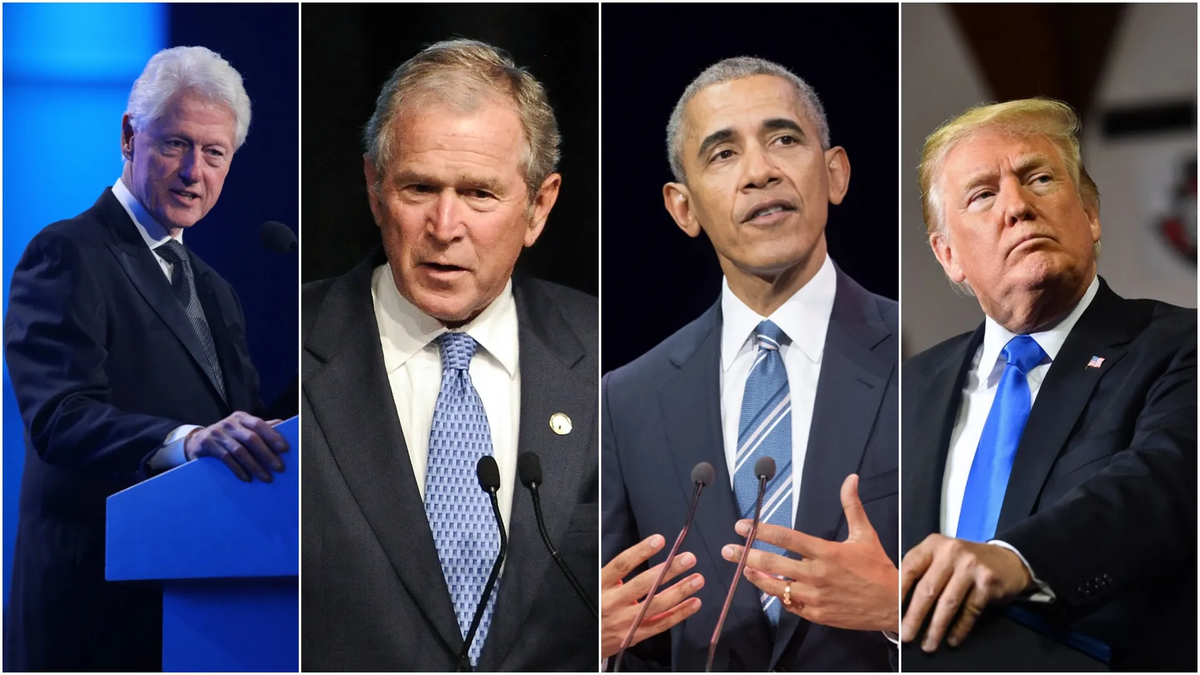The Myth of Presidential Power
We’ve all heard it before: “This is the most important election of our lifetime!”

We’ve all heard it before: “This is the most important election of our lifetime!” But is it really? As we approach another presidential election cycle, it’s worth asking ourselves a provocative question: Does the U.S. president actually have a significant impact on our daily lives, or is this notion just a modern myth?
The Emperor has No Clothes
For decades, we’ve been sold the idea that the president is the most powerful person in the world, capable of shaping our nation’s destiny with a stroke of a pen. But is this perception accurate?
The truth is the president’s power is often overstated. Our system of government was designed with checks and balances to prevent any one branch from becoming too powerful. Congress makes laws, the Supreme Court interprets them, and the president is left to execute them. This separation of powers limits the president’s ability to enact sweeping changes single-handedly.
The Reality of Presidential Influence
While the president’s direct power might be limited, their influence can be far-reaching. Here are some ways presidents can impact our lives:
Economic Policies
Presidents can propose budgets, negotiate trade deals, and appoint key economic advisors. These decisions can affect job markets, inflation rates, and overall economic growth.
Foreign Policy
As commander-in-chief, the president has significant control over military actions and diplomatic relations. Their decisions in this arena can have global consequences that trickle down to our everyday lives.
Judicial Appointments
Presidents nominate Supreme Court justices and federal judges. These appointments can shape legal interpretations for decades, affecting everything from civil rights to business regulations.
Bully Pulpit
The president’s ability to command media attention and shape public discourse shouldn’t be underestimated. Their rhetoric can influence social norms and public opinion on various issues.
The Overestimation of Presidential Impact
Despite these areas of influence, we often attribute too much credit (or blame) to presidents for things beyond their control.
For instance:
- Economic cycles often operate independently of presidential policies
- Global events can derail even the best-laid plans
- Long-term trends in technology and society often outweigh short-term political decisions
The Role of Other Factors
When considering the president’s impact, it’s crucial to remember other significant factors that shape our lives:
Congress
Many of the laws that directly affect us are crafted and passed by Congress. The president can propose legislation, but it’s up to Congress to make it a reality.
State and Local Governments
From education policies to law enforcement practices, state and local governments often have a more direct impact on our day-to-day experiences than the federal government.
Private Sector
Innovations in technology, changes in business practices, and shifts in consumer behavior can dramatically alter our lives, often independently of who occupies the White House.
The Media’s Role in Shaping Perception
It’s worth noting that the media plays a significant role in shaping our perception of presidential power. The 24/7 news cycle and the personalization of politics can make it seem like the president is at the center of every national issue.
So, Does the President Matter?
The answer, like many things in life, is nuanced. While the president certainly has the potential to impact our lives in meaningful ways, their influence is often more indirect and limited than we might think.
Perhaps a more accurate view is that the president is an important player in a complex system of governance, rather than an all-powerful figure who single-handedly determines the nation’s fate.
What This Means for Voters
Understanding the realities of presidential power can help us become more informed voters. Instead of focusing solely on presidential candidates, we should:
- Pay attention to congressional and local elections
- Understand the broader context of national and global trends
- Recognize the limits of what any single leader can achieve
The Bottom Line
While it’s important to engage in the democratic process and make informed choices at the ballot box, it’s equally crucial to maintain perspective. The president, while influential, is not omnipotent. Our lives are shaped by a myriad of factors, many of which operate independently of who occupies the Oval Office.
So the next time you hear someone claim that this election will change everything, take a step back. Consider the bigger picture. And remember that while presidents come and go, the true strength of our nation lies in its people, its institutions, and its enduring principles of democracy.
After all, isn’t that what makes America truly great?





